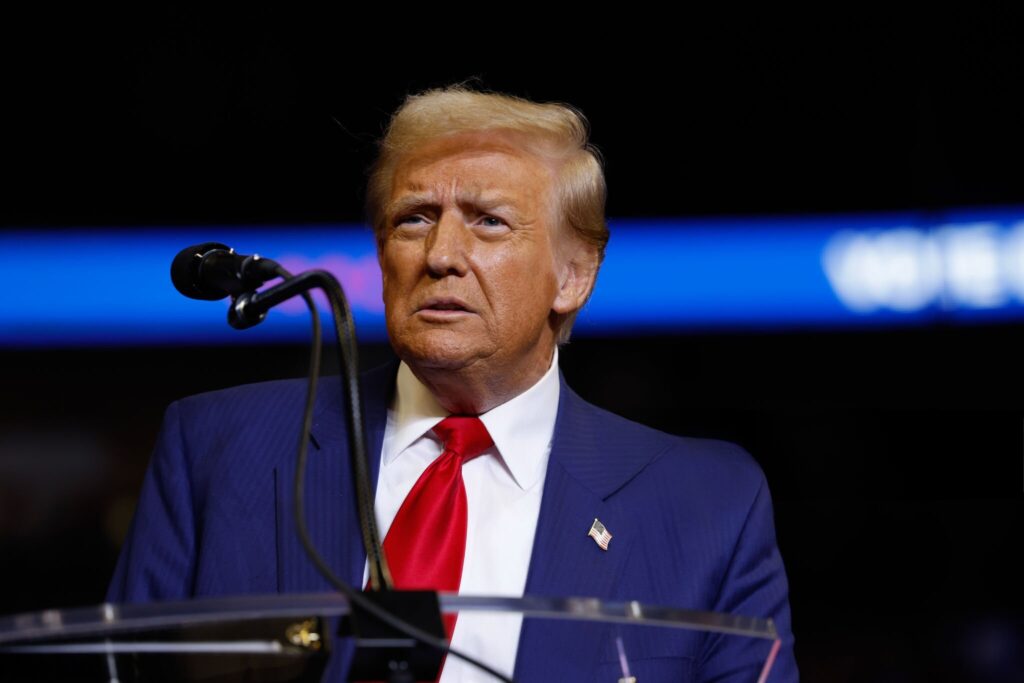Trump’s Stance on Syria
Donald Trump promised to keep America out of foreign wars. He recently repeated this stance on Syria. While visiting Paris, Trump posted on Truth Social, stating, “Syria is a mess, but not our fight.” He insisted the U.S. should avoid involvement in Syria’s issues.
His comments highlight his campaign message of non-intervention. But Assad’s fall has shifted Middle East power dynamics. Many question if Trump can truly avoid involvement.
Challenges Facing Trump’s Approach
The Biden administration is conducting diplomatic efforts following Assad’s ousting. Antony Blinken, Secretary of State, is rallying support from regional leaders in Jordan and Turkey. The U.S. aims for a transparent, non-terrorist, and inclusive Syrian government. They also seek to ensure Syria does not threaten neighbors or maintain chemical weapons.
The fall of Assad created a power vacuum. Hayat Tahrir al-Sham (HTS), a U.S.-designated terrorist group, filled the void. The U.S. hopes to influence Syria’s future government’s actions. Trump’s ability to disengage from this situation is now in doubt.
Trump’s Team’s Role
Mike Waltz, Trump’s pick for national security adviser, says Trump’s priority is avoiding new Middle East wars. Waltz listed Trump’s “core interests” in Syria: fighting ISIS, supporting Israel, and backing Gulf Arab allies. Syria, in his view, is one part of the Middle East puzzle.
Trump’s approach includes securing a diplomatic deal normalizing Israel-Saudi Arabia relations. He sees this as a chance to weaken Iran’s influence. Trump’s approach to Syria mirrors his past views. He previously called Syria a “land of sand and death” and showed little interest in its affairs.
U.S. Military Presence in Syria
The U.S. has 900 troops stationed east of the Euphrates River. Their mission is to combat ISIS and train the Syrian Democratic Forces (SDF). This presence also limits Iran’s ability to transfer weapons to Hezbollah. While Trump’s stance is non-intervention, his officials admit action may be necessary if U.S. interests are threatened.
Differing Views on Trump’s Strategy
Robert Ford, former U.S. ambassador to Syria, believes Trump’s anti-interventionist rhetoric may change due to ground realities. Ford noted that some in Trump’s team prioritize counterterrorism, which may require involvement in Syria.
Wa’el Alzayat, a former U.S. State Department adviser, says Trump’s administration includes “serious players” like Senator Marco Rubio, his pick for Secretary of State. Rubio’s proactive foreign policy stance may influence Trump’s approach.
Trump’s Past Contradictions on Non-Intervention
During Trump’s first term, he reduced CIA support for Syrian rebels and withdrew troops from northern Syria. However, his 2017 missile strike on Syria’s Shayrat Airbase, following Assad’s chemical attack, contradicted his non-intervention stance. Additionally, Trump’s administration increased sanctions against Syria’s leadership.
Mike Waltz acknowledged Trump’s “not our fight” pledge does not mean total disengagement. He noted Trump’s readiness to act decisively if U.S. interests are threatened.
Key Figures in Trump’s Administration
Tulsi Gabbard’s appointment as Director of National Intelligence also draws attention. Gabbard’s 2017 visit to Assad and past criticism of U.S. Syria policy sparked controversy. Her role may influence U.S. intelligence views on Syria, adding complexity to Trump’s stance.
Implications for Biden’s Approach
Biden’s and Trump’s approaches to Syria have similarities. Both want a Syrian government aligned with U.S. interests. Both aim to reduce Iran’s and Russia’s roles in Syria. However, Biden’s support for Kurdish allies contrasts with Trump’s less-committed approach.
Bassam Barabandi, a former Syrian diplomat, predicts Trump will withdraw U.S. troops slowly, unlike the swift Afghanistan withdrawal. Barabandi expects Trump to set a specific timeline for withdrawal and arrange security measures beforehand.
Turkey’s Role in Syria’s Future
Trump’s relationship with Turkish President Erdogan could play a crucial role. Turkey’s tensions with the SDF, which it sees as a terrorist group, add to the complexity. Since Assad’s fall, Turkey has launched airstrikes to force Kurdish fighters from strategic areas. A potential deal with Erdogan could see Turkey’s influence in Syria increase, worrying some U.S. officials.
Conclusion
Trump’s goal to avoid entanglement in Syria faces many obstacles. Regional power shifts, U.S. military commitments, and the rise of HTS complicate his plans. The involvement of key figures like Rubio, Waltz, and Gabbard suggests Trump’s isolationist ideals may face pushback. While his “not our fight” stance is clear, achieving it may prove far more difficult.
